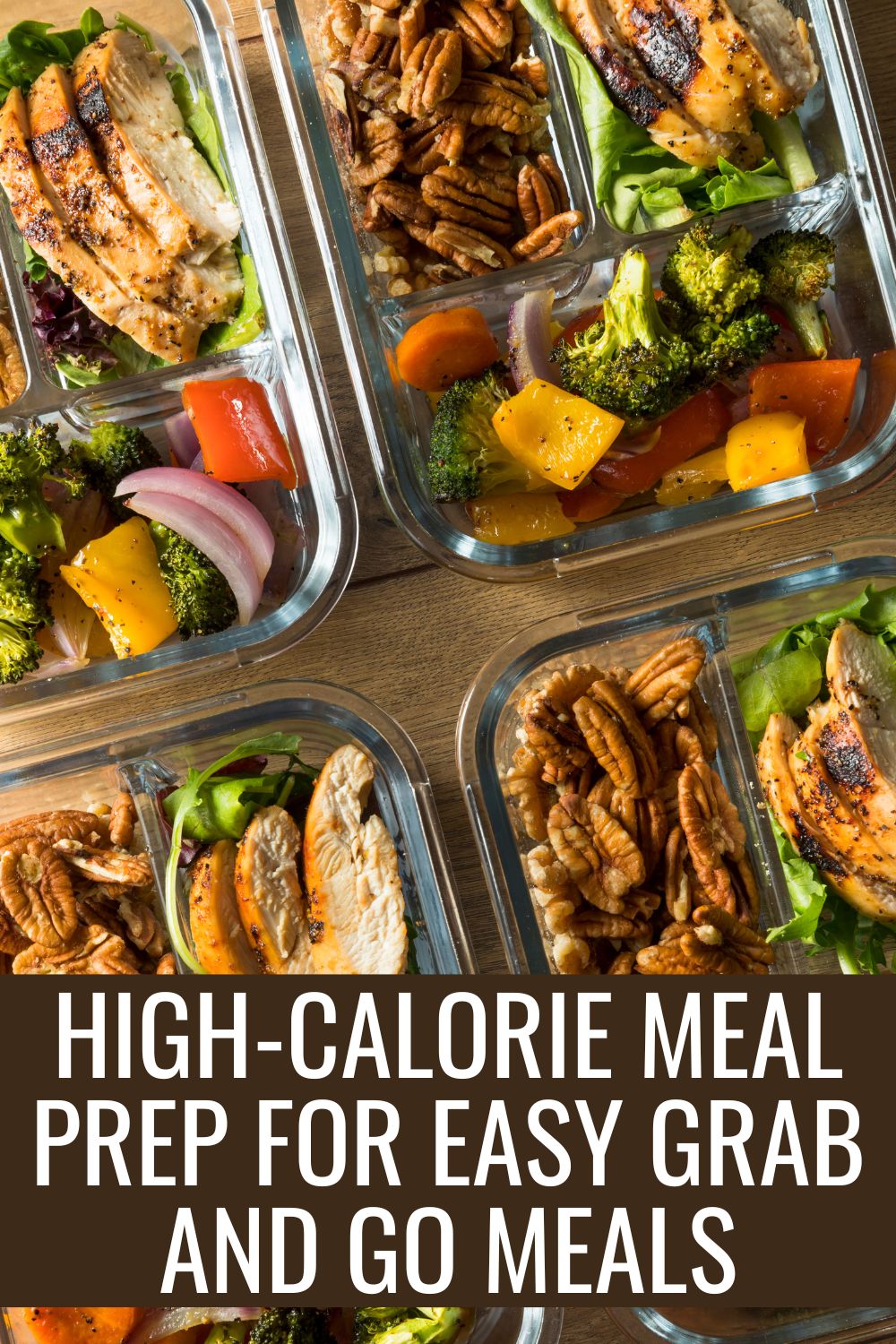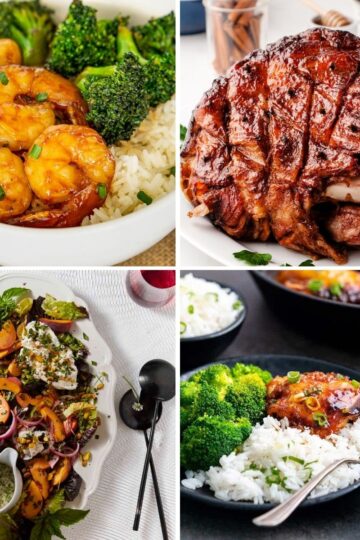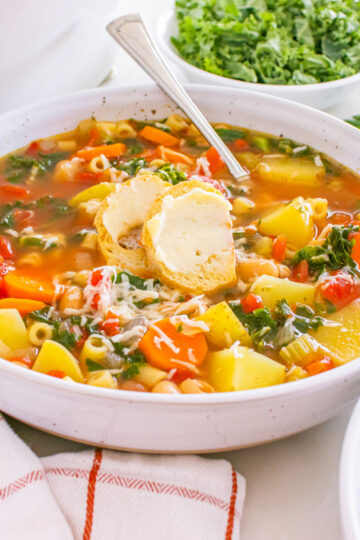Whether trying to gain weight or planning a week-long backpacking trip - you probably know you’ll need to stock up on high-calorie foods. You could hit the drive-thru and get junk food and consume processed sugary snacks since they’re high calorie-foods, but the reality is that they’re not good for you.
High-calorie meal prep means preparing food that includes protein, carbohydrates, and fats in advance. Nutritious, homemade meals that contain more calories than your body needs will help you gradually gain weight. It can also keep you fueled when doing activities that burn excessive calories.
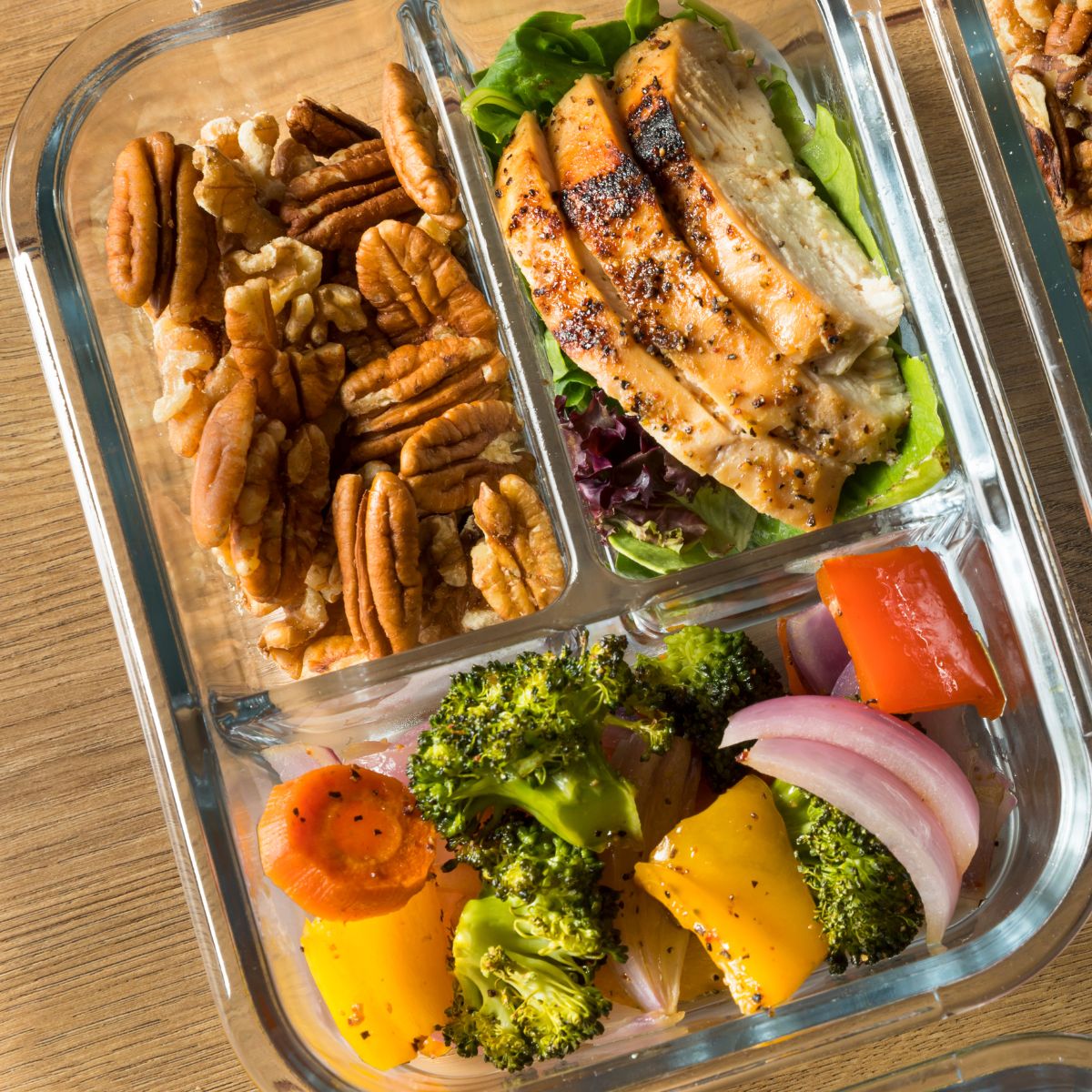
You must always follow proper food storage guidelines to keep your high-calorie meals fresh and safe. It will also help to be mindful of the lifespan of the ingredients you include in your meals.
Prepping High-Calorie Meals
Meal prepping is one of the best ways to organize your diet, hold yourself accountable, and help you achieve results faster. Many people choose one day a week to prepare seven days of meals.
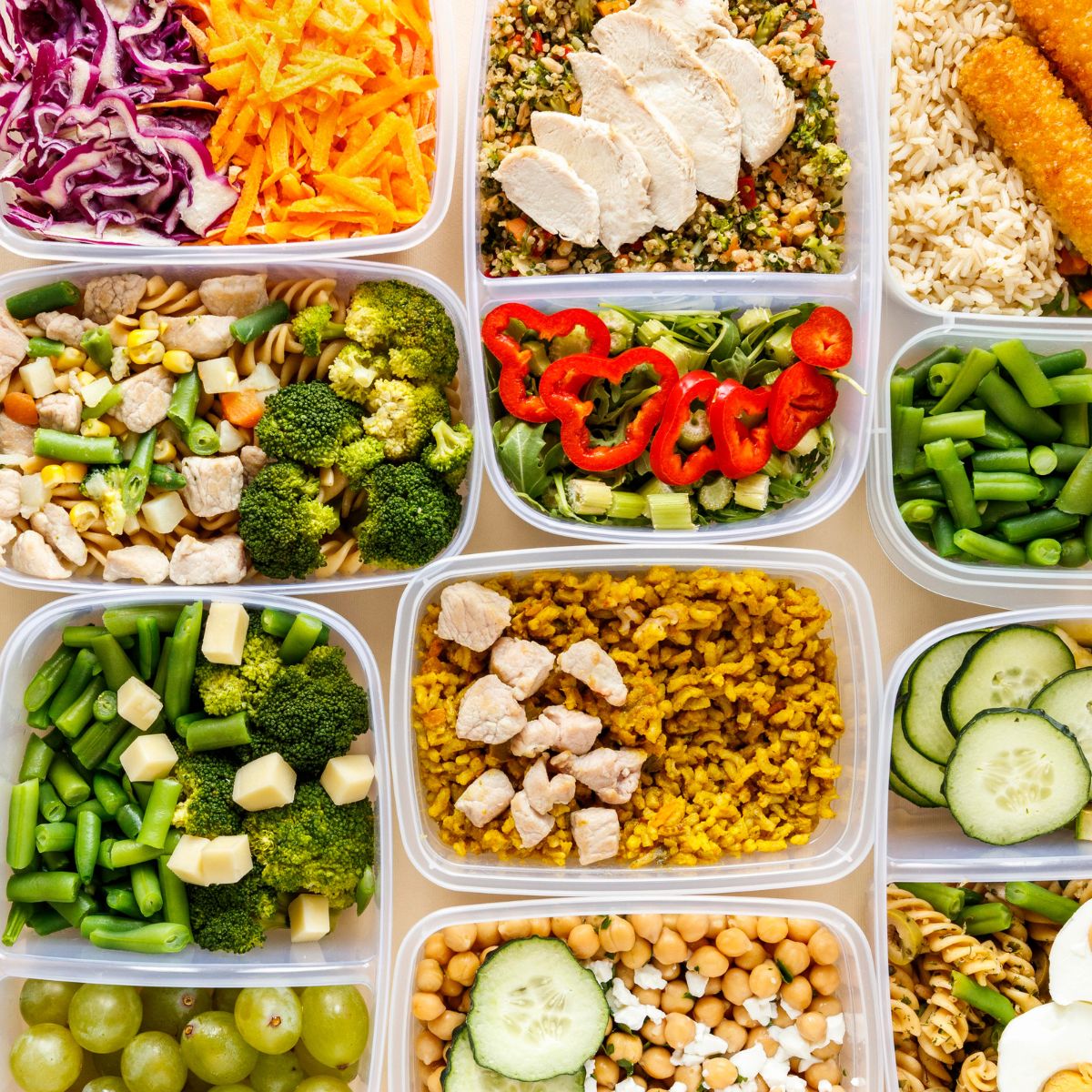
If you are new to meal prep, keep it simple. Start by cooking one type of meal – breakfast, lunch, dinner, or snacks – that will last you a couple of days until you are confident you can prep a week’s worth.
Batch cooking saves you time and money, and you can portion your dishes individually, making it easier to control your daily calories. Individually portioned meals require some planning regarding the specific ingredients you include and the portion sizes. Still, it is worth it if you are looking to achieve your daily calorie goals.
If you understand what foods to eat and how often, you are well on your way to gaining lean mass or keeping at an optimum level during physical activity. Individual portions are ideal if you want to snack or eat more frequently during the day. Consuming calories more regularly is a much healthier approach to gaining weight, for example, than skipping meals and letting yourself overeat once or twice a day.
Preparing and portioning your food in advance according to your frequency and calorie requirements is thus a perfect grab-and-go solution. It cuts time in the kitchen and eliminates having to calculate calories on the spot.
How Do You Store High-Calorie Meals?
Your health and safety should always be a priority when preparing calorie-rich foods, like animal proteins, in advance. Think carefully about how you store your high-calorie meals and for which length. Suppose you don’t follow food safety guidelines. In that case, you risk consuming contaminated food and getting seriously ill from it (E. coli or salmonella).
Once you have decided which high-calorie meals to prepare, stock up on reusable, airtight food storage containers, glass being the safest option. To keep your meals fresh and any unwanted odors out, ensure that the lids of your containers lock correctly.
Finally, consider when to prepare your high-calorie food in advance and which ingredients you want to add. These factors will determine whether you utilize your fridge or your freezer for storage.
Storing high-calorie meal prep in the fridge
If you prepare high-calorie meals that you plan to consume within 1-4 days, keeping them in the refrigerator is a safe option. There are a few factors, however, that you will still need to consider before doing so.
Ensure your refrigerator runs at 40° F (4°C) or lower. The longer heated food remains at room temperature, the greater the risk of illness-causing bacteria forming. It is, therefore, crucial to remember that you must place cooked meals in the fridge within two hours of preparation.
Freezing high-calorie meals
Very few calorie-rich ingredients lose their texture and taste in the freezer, making it the perfect storage solution for your meal prep. Even frozen dairy products, like yogurt and milk, take about 2-3 months before you notice a difference in their texture after thawing.
Some high-calorie dishes benefit from freezing since it breaks down cell structure, allowing the food to release more flavor. Ingredients like cooked potatoes, sweet potatoes, brown rice, lentils, and beans in dishes like stews, sauces, and soups can thus taste better when frozen and reheated.
Here are some high-calorie products that can withstand both the fridge and freezer, making them an ideal component in your high-calorie meal menu:
- Avocado
- Beans
- Beef
- Butter and nut butter
- Cheese (e.g., Parmesan and ricotta)
- Chicken (with skin)
- Dark chocolate
- Dry fruit and berries
- Granola
- Hummus
- Lamb
- Lentils
- Mango
- Milk (full-fat)
- Nuts and seeds
- Pasta
- Peanut butter
- Peas
- Potatoes and sweet potatoes
- Rice
- Squash
- Whole grains
- Yogurt (full-fat)
You must check your freezer’s temperatures periodically to ensure it is 0° F (-18° C). Like refrigeration, ensure you freeze cooked food or ingredients within two hours after it cools down. If it is still warm, place the meals in the fridge until they have cooled completely before transferring them to your freezer.
High-Calorie Meal Prep Ideas
Various websites provide access to various meal prep recipes and meal plans. However, finding high-calorie meal prep ideas online can be challenging since most people want to lose weight. Start by deciding which high-calorie ingredients you want as the hero in your dishes, then research meal ideas containing those elements.
Breakfast
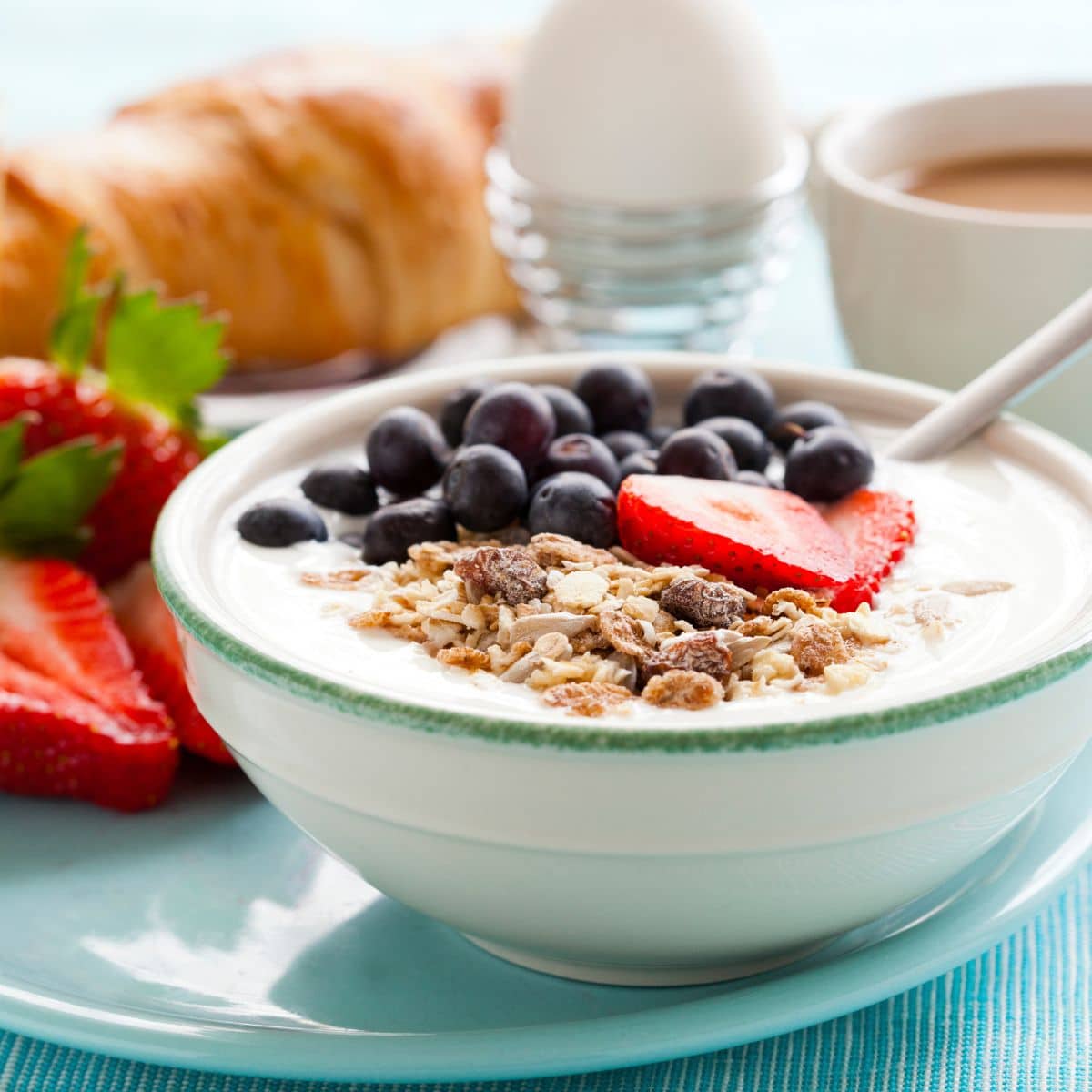
A busy lifestyle often means sacrificing a wholesome breakfast for something quick and easy yet unhealthy, like store-bought granola bars or sugary cereal. Prepping your high-calorie breakfast meals in advance can offer a solution to this. The following breakfast options keep well in a fridge or freezer, and you can adapt them by adding fruit, vegetables, protein powders, nuts, and seeds to your taste:
- Cheesy Frittata
- Breakfast Burritos
- Peanut Butter Chocolate Oatmeal Bowl
- Overnight Oats
- Smoked Salmon Omelet
- Baked Omelet Muffins
- Buttermilk Pancake
- Overnight French Toast
- Overnight Muesli
- Quiche
Lunch and dinner

Fridge- and freezer-friendly dishes that you can have for lunch or dinner, with various calorie-rich accompaniments of your choice, include:
- Chicken Fajita
- Slow Cooker Chicken Tortilla Soup
- Tortilla Casserole
- Indian Spiced Chicken and Rice
- Chicken Curry
- Chicken Pad Thai
- Chicken Marsala
- Grilled Pesto Chicken and Pasta
- Mexican Beef Stew
- Steak And Eggs Omelet
- Filet Mignon with Sweet Potato
- Black Bean Stew
- Salmon Grain Bowl
- Salmon Stir-Fried Noodles
- Salmon Chowder
Final thoughts
The benefits of high-calorie meal prepping are endless. It can alleviate the stress of a busy work week and, most importantly, help you manage your calorie consumption according to your nutritional needs.
Most people plan and conduct meal prep weekly. However, you can tailor your cooking schedule and meal plans to the limits of your weekly grocery budget or free time – whichever works for you. Do proper research and follow the general health and safety food preparation and storage guidelines.
